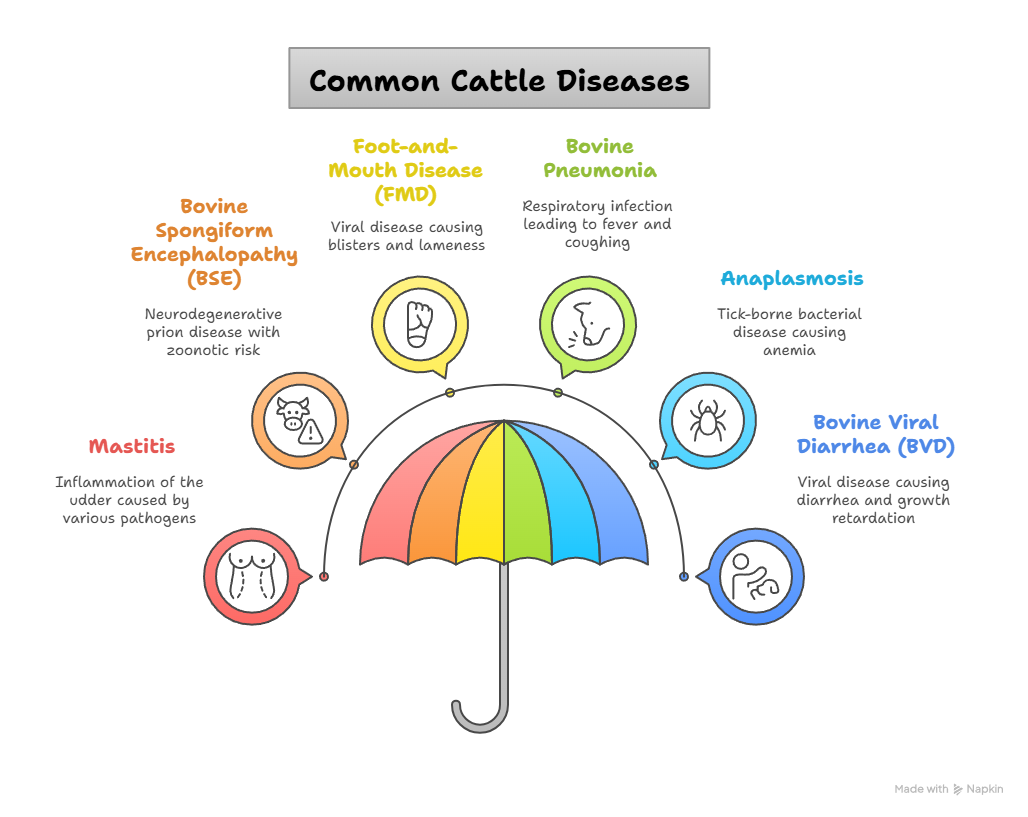NISHAD Designated as Global Rinderpest Holding Facility | 17 Jun 2025
ICAR-NIHSAD, Bhopal, has been designated a Category A Rinderpest Holding Facility by World Organisation for Animal Health (WOAH) and the Food and Agriculture Organization (FAO) , making India one of 6 countries globally entrusted with securely holding Rinderpest Virus-Containing Material.
- Rinderpest: Rinderpest (cattle plague) was a highly contagious and deadly viral disease, globally eradicated in 2011, that affected cattle, buffaloes, and some wild ruminants caused by the Rinderpest virus (a Morbillivirus related to measles).
- It spread via contact with infected secretions or contaminated feed/water. Symptoms included high fever, mouth ulcers, diarrhoea, and rapid death.
- It caused massive livestock losses across Africa, Asia, and Europe, leading to economic collapse and food insecurity.
- The virus of this disease is still stored in a few high-security laboratories, and any accidental or intentional release could lead to its re-emergence.
- Therefore, FAO and WOAH strictly regulate the storage and handling of Rinderpest Virus-Containing Material (RVCM).
NIHSAD (National Institute of High Security Animal Diseases)
- NIHSAD is India’s premier Biosafety Level-3 (BSL-3) facility high-containment lab for research on exotic and emerging animal pathogens, disease diagnosis, and bio-containment of high-risk organisms.
- Established in 1984 as High Security Animal Disease Laboratory (HSADL) and later renamed, it serves as a reference lab for avian influenza, Newcastle disease, and other transboundary and zoonotic diseases under the One Health framework.
- It functions under Indian Council of Agricultural Research (ICAR), Ministry of Agriculture & Farmers’ Welfare.
| Read More: Lumpy Skin Disease |

